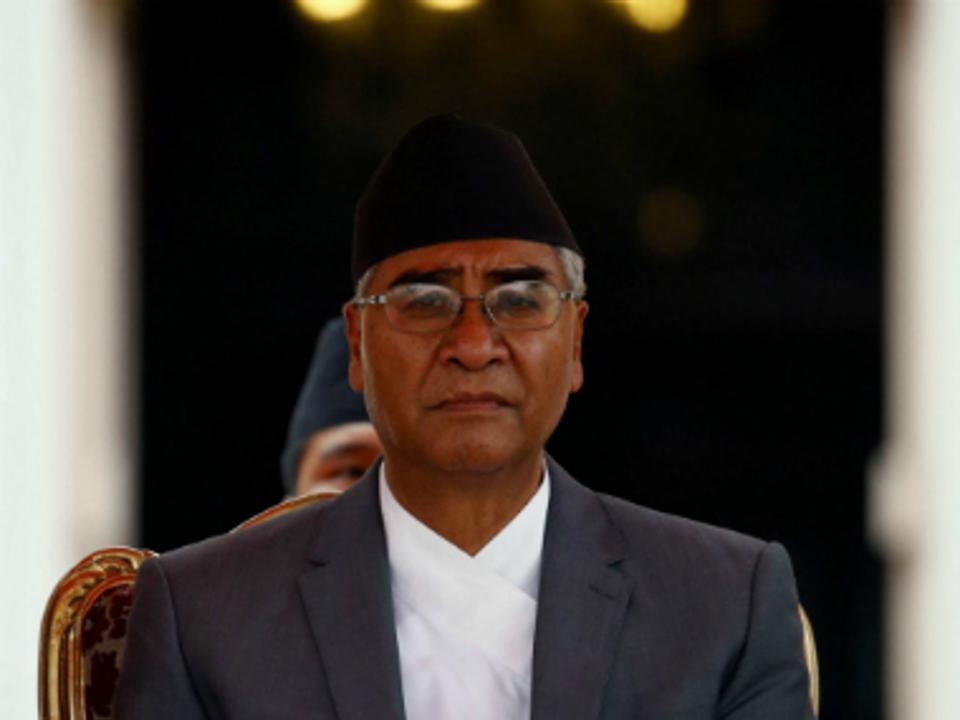 Nepal Foreign Affairs (KATHMANDU,19 August) – After the two high level visit of India and China to Nepal, Now it’s Nepal turn to visit neighbourhood. And, Prime Minister Sher Bahadur Deuba is visiting India on 23 August for four days as his maiden foreign trip after he assumed Premiership.
Nepal Foreign Affairs (KATHMANDU,19 August) – After the two high level visit of India and China to Nepal, Now it’s Nepal turn to visit neighbourhood. And, Prime Minister Sher Bahadur Deuba is visiting India on 23 August for four days as his maiden foreign trip after he assumed Premiership.
Indian Foreign Minister Shushama Swaraj visited Nepal on 10 August for attending BIMSTEC but her definite priority was to hold political meetings. She followed the tradition by continuously bullying Nepali political actors and intervened on the domestic affairs. Shushma explicitly asked the Prime Minister Deuba and Prachanda to uphold the alliance as she said for the ”Nepali democracy” levelling the alliance as ”new chapter” in Nepali politics.
Secondly, She directed the leaders of Rartriya Janata Party (RJP) , new party formed by the disgruntled Madhesi Parties, to take part in local level election even without the amendment of the constitution. Her reiteration was obviously to begin the parliamentary process to decide the fate of the second amendment of the constitution. RJP and Ruling Alliance acquired power by India’s direction, so the process has begun in Nepal’s parliament. In other word, Shushma’s Kathmandu meet succeeded to keep Delhi’s loyal on track.
After Shushma, Chinese Vice Premier visited Nepal at the invitation of his Nepali Counterpart Bijaya Kumar Gachhedar. Implementations of OBOR, past agreements and understanding signed by the previous Oli Government were in the agenda. Vice Premier held meetings with all the concern stakeholders including the major leaders of major parties. He appreciated Nepal’s ”One China Policy” and believed Nepal will continue follow this principle of not allowing others to use Nepali land against China.
Interestingly both the Indian Minister Shushma and Chinese Vice Premier Wang didn’t raise the issue of Doklam in delegation level meet but they strongly put their position of Doklam in one to one meetings. China submitted diplomatic note to Nepal’s Foreign Ministry that includes the Beijing’s position paper on Doklam. The one liner of China to Nepal on Doklam is – maintain ”Neutrality” as Nepal has already made public this position.
In such a backdrop, Prime Minister Deuba’s India visit can be questioned. Besides these external adversities, domestic political situation is volatile, historic work to hold the third phase election in province no.2 at the corner. Similarly, needful preparations for holding the federal and provincial elections are yet to launch. Therefore, it can be said that Prime Minister Deuba should not visit India and China leaving aside these domestic challenges un-faced.
The more terrible situation now is to address the flood victims, rescue and rehabilitate them. About 150 died, thousands became homeless. Dams constructed by India at the south have been the cause of this flood and erosion. Anger against India has been at the centre, anti-Indian sentiment at the rise. Deuba’s New Delhi visit in such a situation might hardly bring any positive outcome to Nepal.
Diplomatically, high level visits are natural to boost the bilateral relations. In such visits, the countries get an opportunity to understand each other interests and priorities so that bilateral relations can be strengthen smoothly. But the very condition of such visit is ”reciprocity”, which should be followed. In Nepal’s tradition, reciprocity has never been the part of diplomatic visits. Look these 18 months, Nepal’s two Prime Minster KP Oli and Prachanda officially visited India, the third Prime Minister Deuba is visiting after 3 days. Indian Prime Minister Narendra Modi officially visited India in 2014 and second time later to attend the 18th SARRC summit.
Due to the growing geopolitical challenges, Prime Minister Deuba must execute balanced foreign policy. But his elevation as Prime Minister is an Indian design to isolate the nationalist force of Nepal led by KP Sharma Oli. In domestic front, Deuba has been deployed to sideline the forces, which have shown courage to fight against the ”Indian intervention” By presenting Prachanda and Deuba against the Oli in domestic political equation, New Delhi thinks it has also challenged Beijing. Or in nutshell, New Delhi’s move in Nepal targets Beijing.
Deuba’s meeting with Tibet Prime Minister in Exile Lobsang Sangay is one such an incident, China can never forget. India cannot forget Deuba too since it made ground for him to become Nepal’s Prime Minister. Thus Prime Minister Deuba is under the scanner of India and China in such crucial time that seeks enough maturity and neutrality not only in policy but in practice too. Thus, Deuba’s India visit will be under the shadow of adversaries. How can he translate these domestic and external adversaries into conveniences? This is important question.

